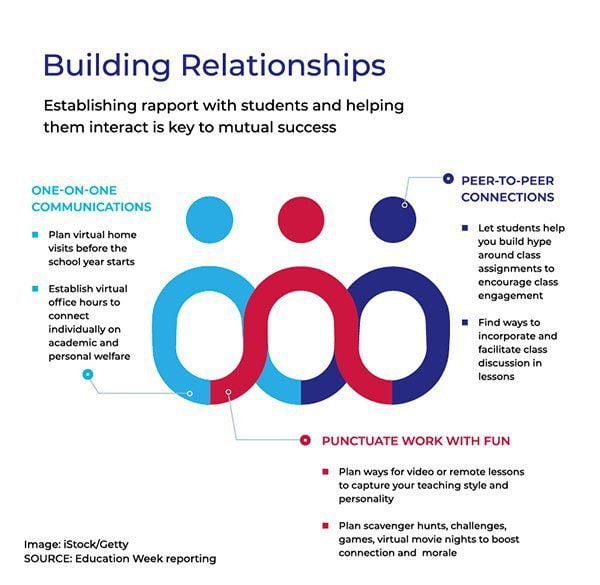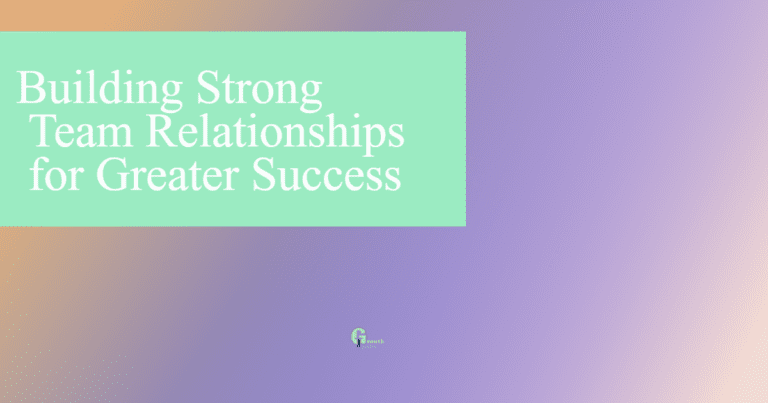Building strong team relationships is essential for creating a successful and productive work environment. When team members feel connected, supported, and appreciated, they are more likely to collaborate effectively and achieve shared goals. In this guide, we will explore the various strategies and techniques to build strong team relationships and foster effective collaboration.
Jump To Section
The Importance of Building Strong Team Relationships
Teamwork is the backbone of any successful organization. In order to thrive, companies must foster an environment where team members work together harmoniously towards a common goal. While individual talents are important, it is the strength of team relationships that truly drives achievement and innovation. Why is it so crucial to building strong team relationships, you may wonder? Let’s delve into the reasons why:
1. Enhanced Communication:
When team members have a strong relationship, communication flows smoothly and efficiently. They feel comfortable providing feedback, sharing ideas, and expressing their concerns. Open and honest communication prevents misunderstandings, promotes greater productivity, and leads to better outcomes.
2. Increased Collaboration:
Strong team relationships encourage collaboration among members. When trust and respect are present, individuals feel empowered to contribute their unique skills and perspectives to the team’s collective efforts. Collaboration generates new ideas, sparks creativity, and ultimately leads to better decision-making.
3. Support and Motivation:
Building strong team relationships cultivates a sense of belonging and community. Team members who care for one another are more likely to provide support during challenging times, celebrating successes together, and spurring each other on to reach new heights. This unified support system boosts morale, increases motivation, and creates a positive work environment.
4. Conflict Resolution:
All teams encounter conflicts from time to time. However, when team relationships are strong, conflicts can be resolved constructively and without damaging personal bonds. Trust and understanding built through strong relationships enable team members to address conflicts openly, find common ground, and work toward mutually beneficial solutions.
5. Overall Productivity and Success:
At the end of the day, building strong team relationships directly impacts an organization’s productivity and success. By promoting effective collaboration, open communication, and supportive interactions, teams can achieve goals faster and with greater efficiency. Strong relationships breed loyalty and commitment among team members, ensuring that they stay focused and dedicated to achieving common objectives.
Understanding Individual Team Members
To build a strong team relationship, it is crucial to understand each team member individually. Take the time to get to know them personally, beyond their professional roles. This can be done through team-building exercises, informal conversations, or even team lunches. Understanding their strengths, weaknesses, and working styles enables you to assign tasks accordingly and foster an environment where everyone can thrive.
Encourage open and honest communication within the team. By creating an atmosphere that facilitates sharing personal experiences, thoughts, and concerns, team members will feel more connected and better understood. Active listening is crucial to ensure effective communication and demonstrate respect for each other’s opinions.
Foster Trust and Communication
Trust is the foundation of strong team relationships. Establish an environment built on trust, honesty, and respect. This can be achieved by setting clear expectations, following through on commitments, and acknowledging and valuing each team member’s contributions.
Open and transparent communication is vital for building trust. Encourage team members to voice their opinions and concerns without fear of judgment or retribution. Foster an atmosphere where everyone feels comfortable speaking up and actively participating in discussions. Regular team meetings, one-on-one check-ins, and open-door policies can promote transparency and improve team dynamics.
Promote Teamwork and Collaboration for Strong Work relationships
To cultivate strong team relationships, it is essential to promote teamwork and collaboration. Clearly define and communicate team goals and objectives to ensure everyone is aligned and working towards a common purpose. When team members understand their roles and responsibilities, they can collaborate more efficiently.
Create opportunities for collaboration and cooperation. Encourage team members to work together on projects or tasks that require complementary skills. This not only fosters a sense of camaraderie but also allows individuals to learn from each other and leverage their collective strengths.
Emphasize the importance of sharing ideas and diverse perspectives within the team. Encourage brainstorming sessions or regular idea-sharing meetings where everyone can contribute their ideas freely. Recognize and appreciate different viewpoints, as this will lead to more innovative solutions and enhance team relationships.
Encourage Team Bonding Activities in the Workplace
Team bonding activities are a wonderful way to strengthen relationships outside of the workplace. Organize regular team-building activities such as team outings, retreats, or social events. These activities provide a chance for team members to relax, unwind, and get to know each other on a more personal level.
Foster a positive and inclusive team culture. Encourage collaboration and support among team members by organizing activities that promote teamwork, such as group exercises, escape rooms, or team sports. These activities not only create bonds but also cultivate a sense of unity and cooperation within the team.
Celebrate team achievements and milestones. Recognize and acknowledge the hard work and accomplishments of the team as a whole. This fosters a positive team environment and motivates team members to continue working together towards shared goals.
Resolving Conflicts and Challenges for Better Team Relationships
Conflicts and challenges are inevitable in any team setting. To build and maintain strong team relationships, it is crucial to address conflicts proactively and constructively. Encourage team members to express their concerns openly and create an atmosphere where conflicts can be discussed openly and respectfully.
Promote open discussions to find mutually beneficial solutions. Encourage active listening and empathy during conflict resolution processes. Provide a safe space for individuals to express their thoughts and feelings, and facilitate constructive conversations to reach common ground.
Utilize conflict resolution techniques such as mediation or team-building exercises specifically designed for conflict management. These techniques can help restore team harmony and strengthen relationships.
Providing Feedback and Recognition
Regularly providing feedback is essential for building strong team relationships. Recognize and acknowledge the individual and collective achievements of team members. Offer constructive feedback to help individuals grow and improve their skills.
Provide specific and actionable feedback that highlights strengths and areas for improvement. This not only helps individuals enhance their performance but also demonstrates your investment in their success.
Recognize and appreciate the efforts and accomplishments of team members. Celebrate milestones, both big and small, and express gratitude for their hard work. This boosts team morale, strengthens relationships, and fosters a positive team culture.
Embracing Diversity and Inclusivity to Build Strong Relationships
Value and embrace diversity within the team. Recognize the unique perspectives, experiences, and backgrounds that each team member brings. Encourage team members to share their diverse viewpoints and opinions, as this can lead to more innovative solutions and better overall outcomes.
 Image courtesy of www.edweek.org
Image courtesy of www.edweek.orgCreate an inclusive environment where different perspectives are welcomed and respected. Foster equality, open-mindedness, and understanding by promoting active participation from all team members. Valuing diversity fosters creativity, empathy, and a stronger bond within the team.
Utilize the variety of perspectives within the team to tackle challenges and solve problems creatively. Embrace different ideas and approaches, as this diversity can lead to more comprehensive and effective solutions.
Conclusion
Building strong team relationships is the cornerstone of a successful and productive team. By understanding each team member individually, fostering trust and communication, promoting teamwork and collaboration, engaging in team bonding activities, resolving conflicts constructively, providing feedback and recognition, and embracing diversity and inclusivity, teams can cultivate positive working relationships that drive success.
Remember, building and maintaining strong team relationships requires effort and commitment from all team members. Implement the strategies outlined in this guide to foster better team dynamics and create a positive and thriving work environment.


